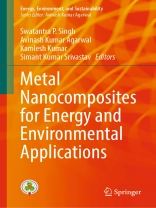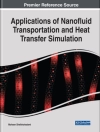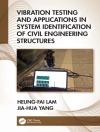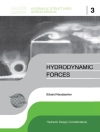This book focuses on recent developments in metal nanomaterials and nanocomposites for energy and environmental application such as pollution control in water, air, and soil pollution. The chapters incorporate carbon-based, metal-based and metal-organic framework based nanomaterials and nanocomposites for emerging contaminants (pharmaceuticals and microplastics) and other traditional pollutants remediation along with energy storage, sensing of air and water polutents and carbon capture & storage (CCS). This book will be of interest to those in academia and industry involved in energy and environmental science & engineering research.
Inhaltsverzeichnis
Introduction of Metal Nanocomposites for Energy and Environmental Applications.- Lightweight Metallic Nanocomposites in Energy Applications.- Metal Oxide–Carbon Nanocomposites for electrochemical storage.- Metal nanocomposite synthesis and its application in electrochemical CO2 reduction.- Metal Nanocomposites – Emerging Advanced Materials for Efficient Carbon Capture.- Synthesis of Graphene Based Nanocomposite from Captured Industrial Carbon.- Metal Organic Frameworks (MOFs) as an Adsorbent Material for CO2 Capture.- Exploration of Amine based Nanofluids as a Potential solvent for Post-combustion CO2 Capture.- Rare Earth element Based Functionalized electrocatalysts in Overall Water Splitting Reactions.- Electrospun Nanocomposite Materials for Environmental and Energy Applications.- Popular Synthesis roots of Metal Nanocomposites.- Green polymers decorated with metal nanocomposites: Application in energy storage, energy economy and environmental safety.- Metal Nanocomposites for Energy and Environmental Applications.- Graphene-Polymer Nanocomposites for Environmental Remediation of Organic Pollutants.- Graphene and graphene oxide-based nitrogenous bases nanocomposites for the detection and removal of selected heavy metals ions from an aqueous medium.- Metal Organic Frameworks Based Nanomaterial: Synthesis and applications; Removal of heavy metal ions from waste water.- Sequestering groundwater contaminants via emerging nanocomposite adsorbents.- Metal nanocomposites based sensors for environmental pollutions.- Metal nanocomposites as optical sensor for ions and molecules of Environmental concern.- Transition metal and conducting polymers nanocomposite for sensing of environmental gases.- Copper-based Polymer Nanocomposites: Application as Sensors.- Stacked Stainless Steel Mesh with Iron Oxide Nanostructures as a Substrate for Nox Emission Control of Diesel Engines.
Über den Autor
Dr. Swatantra Pratap Singh is an environmental engineer with experience in membrane fabrication, environmental nanotechnology, fate, and transport of pollutants and emerging contaminants in the environment. Currently, he is an assistant professor in the Environmental Science and Engineering Department at Indian Institute of Technology (IIT) Bombay, India. He has developed a key technology to fabricate the membranes for water purification and print graphene in-situ in a single step. He has four US patents (two granted and two provisional) on membrane and laser-based graphene fabrication techniques. He has authored 19 journal articles, one book, and three book chapters. He recently won the INAE Young Engineer Award (2020) and ISEES Young Scientists Award (2020).
Dr. Simant Kumar Srivastav is a Material Chemist with a vast experience in the synthesis and characterizations of multifunctional materials. He has over 10 years of research experience in the area of material chemistry. Currently, he is an Assistant Professor in University Department of Chemistry at Lalit Narayan Mithila University, India. He has developed a facile method for the synthesis of phase pure metal oxide nanomaterials. He has authored around 15 international scientific journals and three book chapters. In LNMU, he has formed and leading the ‘Advanced Multifuncational Materails laboratory’ (AMML) group.
Dr. Kamlesh Kumar is currently an Assistant Professor in the Department of Chemistry, Institute of Science, BHU (India). He obtained his Ph.D. degree from Indian Institute of Technology (IIT) Kanpur in 2012. He worked as postdoctoral fellow at Technion-Israel Institute of Technology, Israel followed by Lund University, Sweden and University of Johannesburg, South Africa. His research interest is mainly focused on inorganic and organometallic chemistry as well as catalysis. His research group is developing novel inorganic materialsas catalysts for water splitting as well as organic transformation reactions. Dr. Kumar has published 17 research articles in peer reviewed international journals and is the author of 4 book chapters. He has supervised 9 Master’s students for and is currently supervising 4 doctoral scholars.
Prof. Avinash Kumar Agarwal: Prof. Avinash Kumar Agarwal joined IIT Kanpur in 2001. He worked at the Engine Research Center, UW@Madison, the USA as a Post-Doctoral Fellow (1999 – 2001). His interests are IC engines, combustion, alternate and conventional fuels, lubricating oil tribology, optical diagnostics, laser ignition, HCCI, emissions, and particulate control, 1D and 3D Simulations of engine processes, and large-bore engines. Prof. Agarwal has published 435+ peer-reviewed international journal and conference papers, 70 edited books, 92 books chapters, and 12200+ Scopus and 19000+ Google Scholar citations. He is the associate principal editor of FUEL. He has edited “Handbook of Combustion” (5 Volumes; 3168 pages), published by Wiley VCH, Germany. Prof. Agarwal is a Fellow of SAE (2012), Fellow of ASME (2013), Fellow of ISEES (2015), Fellow of INAE (2015), Fellow of NASI (2018), Fellow of Royal Society of Chemistry (2018), and a Fellow of American Association of Advancement in Science (2020). He is the recipient of several prestigious awards such as Clarivate Analytics India Citation Award-2017 in Engineering and Technology, NASI-Reliance Industries Platinum Jubilee Award-2012; INAE Silver Jubilee Young Engineer Award-2012; Dr. C. V. Raman Young Teachers Award: 2011; SAE Ralph R. Teetor Educational Award -2008; INSA Young Scientist Award-2007; UICT Young Scientist Award-2007; INAE Young Engineer Award-2005. Prof. Agarwal received Prestigious CSIR Shanti Swarup Bhatnagar Award-2016 in Engineering Sciences. Prof. Agarwal is conferred upon Sir J C Bose National Fellowship (2019) by SERB for his outstanding contributions. Prof. Agarwal was ahighly cited researcher (2018) and was in the top ten HCR from India among 4000 HCR researchers globally in 22 fields of inquiry.












